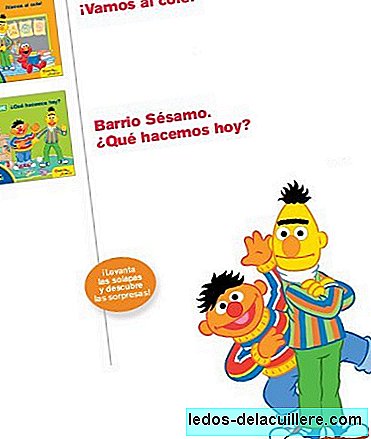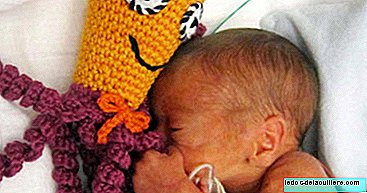
The Codeine It is a molecule that is found naturally in opium, which is used as an analgesic and also as an antitussive. As an example, children's syrups that contain it, usually prescribed for cough, are: Codeisan, Toseína, Bisoltus and Paracetamol Codeína, although it is also associated with ibuprofen and acetylsalicylic acid.
The AEMPS (Spanish Agency for Medicines and Health Products), which depends on the Ministry of Health, has recently issued a statement in which contraindicates the use of Codeine as an analgesic in children under 12 years old, for him risk of poisoning and death.
How codeine works in the body
Once codeine enters our body, transforms into morphine through an enzyme we all have, whose name is CYP2D6. The problem is that not all people have the same amount of this enzyme, and the effect that the same amount of codeine will have on two children of the same age is unpredictable.
Some children or adults with CYP2D6 enzyme deficiency achieve an analgesic effect that could be low and, at the same time, avoid side effects. In contrast, people with more of that enzyme, which are known as ultra-fast metabolizers, transform codeine into morphine more quickly and have more risk of side effects derived from an excess of morphine in a short time.
Review of the effects of codeine at European level
The review of the effects of codeine in children has been carried out at European level by the Committee for the Evaluation of Pharmacovigilance Risk (PRAC) of the European Medicines Agency (EMA), which has reviewed the risk and the benefit of prescribe codeine to children as an analgesic.
The reason for doing the review is that several have been declared cases of children who died or suffered severe symptoms of morphine poisoning, after being codeine-treated as an analgesic after having a tonsillectomy or adenoidectomy intervention, children suffering from obstructive sleep apnea syndrome. Apparently, all the children who died were ultra-fast metabolizers.
After the review they concluded that children under 12 years of age were more at risk of adverse reactions after taking codeine, and that these reactions can be very serious if they are ultra-fast metabolizers. Since there is no test that can determine which children are most at risk, the recommendation is made on all children. In addition, in the review they could also conclude that as an analgesic it is relatively dispensable, since the effect of treating pain is not significantly superior to that offered by other analgesics not derived from opium.
What are the recommendations of the PRAC and the AEMPS
After the review, the use of codeine is recommended only in patients older than 12 years when other painkillers are not considered adequate and contraindicated in the following cases:
- In patients under 18 years of age who will undergo tonsillectomy / adenoidectomy for obstructive sleep apnea syndrome, due to the increased risk of serious adverse reactions.
- Those patients known to be ultra-fast metabolizers, because they present an extremely high risk of morphine poisoning.
- Women during breastfeeding, due to the risk that the child would have to suffer serious adverse reactions in case the mother was an ultrafast metabolizer.
- Codeine should be used in children over 12 years of age at the lowest effective dose and for the shortest possible time. The dose may be distributed in up to 4 daily doses, administered at intervals not less than 6 hours. The total duration of treatment should be limited to 3 days. Patients or their caregivers should be informed to consult their doctor if symptomatic pain relief has not been achieved within three days.
- The use of codeine is not recommended in children in whom there may be a compromise of breathing such as neuromuscular disorders, severe respiratory or cardiac pathology, lung or upper airway infections, multiple trauma or those children who have undergone to extensive surgical procedures.
Codeine in cough syrups
The big question is to know what happens with Codeine in cough syrups, because at the pediatric level it is the most common indication, since paracetamol and ibuprofen are always used for pain. AEMPS says in this regard that He intends to study it, that the available data will be reviewed and then the conclusions will be published.
Until all this happens, they say, it is advisable to apply the restrictions indicated above, that is, do not use any cough syrup with Codeine in children under 12 until further notice, that is, be careful with the syrups mentioned above.












